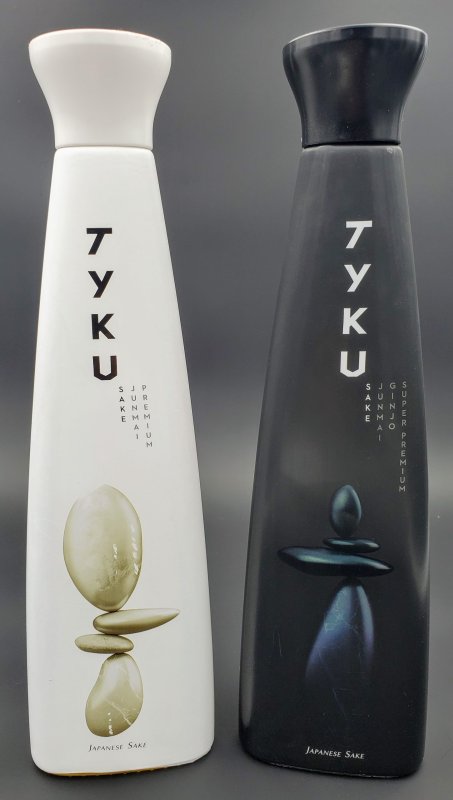Products You May Like
It’s been seven years since we last reviewed Ty Ku’s line of sake, and it’s excessive time for a refresh. Ty Ku, made by Nara prefecture’s Umenoyada Brewery, is without doubt one of the largest and best to search out manufacturers of premium-grade sake in the US. Whereas Umenoyada is well-known for his or her candy yuzu liqueur and produces coconut and cucumber flavored sake for Ty Ku, it’s two of Ty Ku’s unflavored sakes that we are going to be tasting immediately. They’re now recognized by their official classes somewhat than being named by the colour of the bottle.
Ty Ku Junmai (white bottle, beforehand silver) options aromatics which can be half candy and grainy, not not like malt or honey bread, and half ripe banana. The winter squash descriptor from the 2014 assessment stays correct. Sadly it’s a bit primary on the palate, with solely modest ranges of umami and acidity. The flavour depth isn’t subdued, neither is it as potent as I’d prefer to see. General, the sake is nice however too well mannered. I want Ty Ku pushed this one additional; conceivably a Genshu (undiluted) variant would fare higher. B / $23 per 720ml bottle [BUY IT NOW FROM DRIZLY]
Ty Ku Junmai Ginjo (black bottle) drops the candy grain and banana of the Junmai for traditional Ginjo flavors of melon and pear. Nonetheless, general fragrant and taste depth takes a success. Thankfully there’s sufficient candy melon taste on the end to reserve it from tasting bland. Just like the Junmai, what’s right here is nice however the sake tastes too easy and too light. C+ / $29 per 720ml bottle [BUY IT NOW FROM DRIZLY]
All mentioned, I imagine that Ty Ku is onto one thing however doesn’t take sufficient dangers. Give us extra construction, extra taste, and Genshu variants for a begin. Maybe a robust, tangy Yamahai marketed as a superb sake to serve heat would add variety to the model’s lineup.
One different element: Ty Ku makes sake from two totally different rice varieties: Yamada Nishiki, the basic rice for Ginjo-style sake, and the little recognized Akebono. After some analysis I found that Akebono lacks a well-defined shinpaku (discover the dearth of an opaque starchy heart within the picture at proper), which defines it as a desk rice selection. Nonetheless, Ty Ku calls Akebono “premium sake rice” on its Junmai bottle and web site.
The remark acquired from Ty Ku’s PR firm was: “the notion right here within the States is that desk rice, in terms of producing sake, has a sure destructive connotation, when it really is thought to provide very distinguished sake. The brewers at Ty Ku use a couple of totally different types of rice and sakimai (sake rice) to provide their award-winning sake, they usually’re assured that top-tier sake is created from a mix of various rice varieties.”



